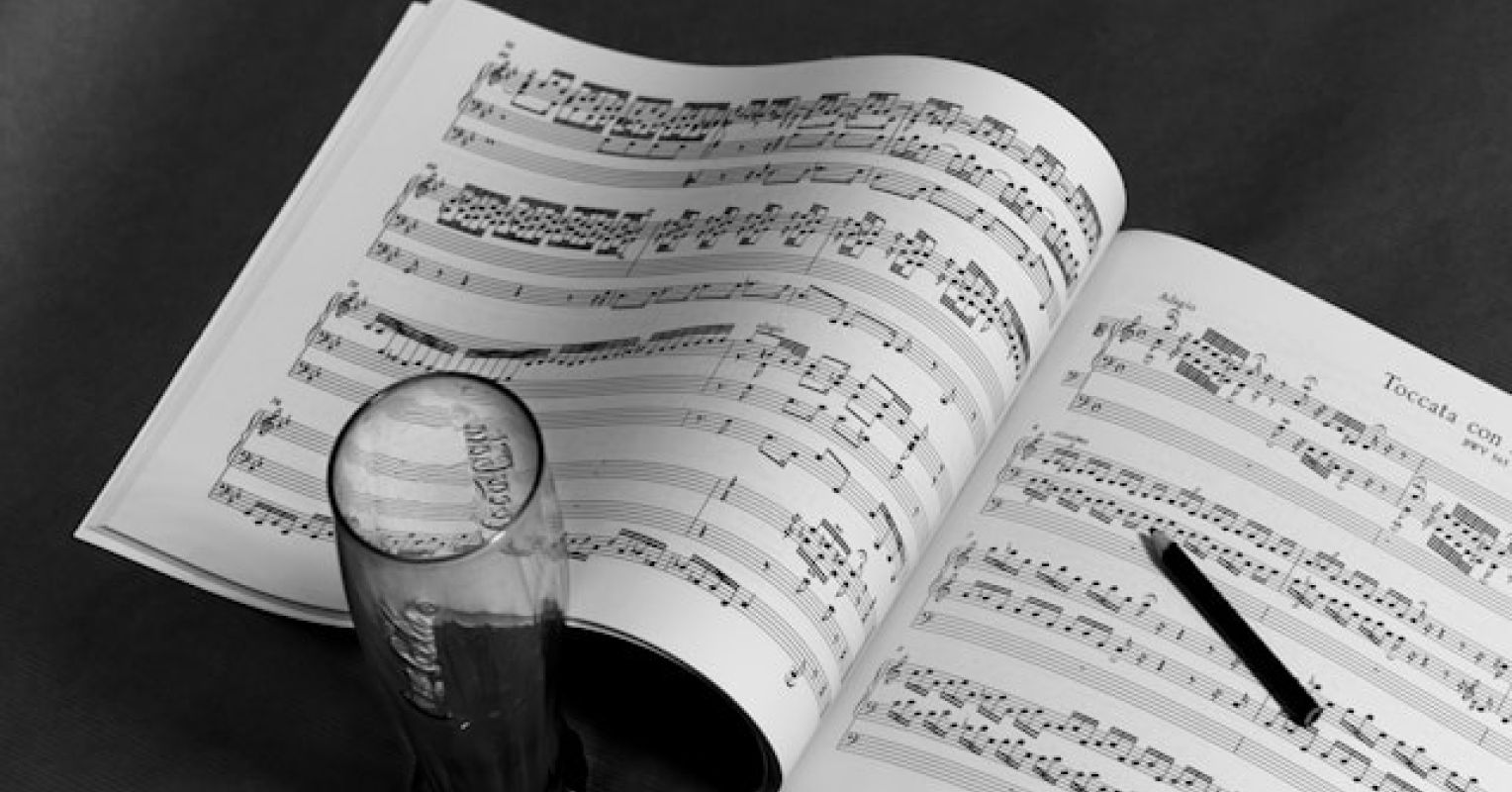
Pauses in Production: A Curious Case of Classical Composers
Source: Xavier von Erlach / Unsplash
As readers of this blog know, I often tag my posts with the subject area categorization of Creativity because, after all, music is an art form and a creative endeavor. As a result, I was recently contacted by a freelance writer who was working on a story about classical music composers who stopped composing for a time. In her correspondence with me, as examples of this phenomenon, she cited Finnish Jean Sibelius’ lack of major works in his final 30 years, and Italian great Rossini not writing opera for his final 40 years of life. Ultimately, her published piece focused on Argentinian composer Osvaldo Golijov, who in the early 2000s was hailed a classical music genius and the voice of the new millenium, but who then went silent for over a decade.
Some years ago, I considered the creative productivity of great composers by reviewing research-informed theories from psychology (Woody, 2022). I arrived at a conclusion, based on extensive research on the careers of classical composers by Simonton (2000), that the most productive and acclaimed composers required less time to attain an expert level of musical mastery, which resulted in composition becoming a career goal for them early in life. This accounts for why some musicians, relatively early in their careers, can experience success and even achieve greatness as composers.
A stoppage of creative output at that point, however, is less easily explained, but is fascinating. Consideration of this phenomenon begs several questions, to which I offer preliminary answers below.
Why do classical composers, specifically, experience long dry spells?
Research on the creativity trajectories of eminent composers has revealed a number of factors that affect productivity over a career. These include the ages at which they began studying music, began composing, and wrote their earliest acknowledged masterworks. Additionally, some composers have been more traditionally minded in the music they create, whereas others consider themselves to be experimentalist or domain innovators. Then, of course, there are the personality factors of confidence (certainty in their contributions) and self-criticism. A particular combination of these factors could explain why someone goes through a dry spell.
Perhaps, if a composer has success (productivity and/or popularity) early in their career before they’ve really gained the self-awareness to understand the effort and opportunities that went into it, they may spend many subsequent years “chasing the feeling” of that early success that easily came to them. And if their confidence suffers and they are particularly harsh in their self-criticism, they may not regain the fertile mindset that facilitated that early productivity.
A lot of the creativity that psychology has found in composers has also been found in other creative artists, including musicians in more popular styles. So if, in fact, classical composers are more susceptible to dry spells than others, then I might surmise that it has to do with the fact that the works of classical music, compared to other musical genres, exist on a larger scale. Sonatas, concerti, and symphonies, as examples, are multi-movement compositions that typically last much longer than the common forms of other musical styles. Also, in classical music, great value is attached to the sophistication or complexity of compositions; thus, it requires more time and effort to create. Since classical music, as a whole, happens on such a large scale, it follows that classical composers’ dry spells might appear larger than those of other creative artists.
Does composers’ artistic production require a stroke of genius/inspiration or conscientious, diligent work?
Music lovers—as well as musicians, themselves—often mystify the processes of artistic production, whereby it becomes this kind of otherworldly or magical process that mere mortals cannot hope to understand. Research on composition points to the idea that all composers go through a similar creative process, which necessarily includes stages of preparation, idea generation, and then a developing or “working out” of ideas. Although all composers go through all these stages in one form or another, some composers are very cognizant of the effort they put into the advance planning and development of ideas, so based on how they describe their creative process—as they experience it—they are considered “working-type composers.” In contrast, other composers minimize the musical preparation that precedes their composing and minimize the application of their musicianship in the latter refining stages of their compositional process; they characterize their composing as the generation of new ideas, which they may subjectively experience as ideas coming to them from a source outside themselves.
Mozart was said to receive musical ideas from vivid dreams and Brahms credited the Spirit of God. Such supernatural accounts are well received because they add to the “magical” and captivating nature of music. Alternatively, though, cognitive psychology explains great creativity as the result of an expert-level knowledge base (i.e., “genius”), acquired through experience, study, and practice, and from exceptional mental openness and flexibility by which composers connect and combine what they know to create new versions of knowledge. As human beings, composers need subjective reasons—“inspiration,” if you will—to motivate them to use their acquired musical knowledge and motivate them to think openly and flexibly. Ultimately I think great creativity in composing always requires both “inspiration” and effort. In my 2022 book Psychology for Musicians, I quoted Pulitzer Prize and Grammy Award winning contemporary classical composer Jennifer Higdon, who talked about teaching composition to others: “Students often ask me, ‘Should I wait until I am inspired?’ No, you should be sitting there writing every day to get the inspiration in the first place” (Raines, 2015, p. 24).
Many composers describe their process as something outside of their control. Is that just them being in a flow state? Or is creativity (and creative production) truly outside of musicians’ consciousness?
As I described above, many composers subjectively experience their creative generation of ideas as merely receiving ideas from a source outside themselves. The issue of flow in these moments comes down to the ability to suspend a mindset of self-criticism to let new ideas “flow” from their minds, even though they experience the ideas as coming from a muse, the universe, God, or just “out there.” Genuine creativity has two distinct aspects: first is the generation of new ideas and second is the development of the ideas to verify that they are good or useful or effective. Both aspects are required in the creative process but they each require a very different mindset.
The generation of new ideas requires suspending self-judgment, but the conscious development of ideas needs that evaluative (i.e., judgmental) mindset. When people try to generate new ideas while retaining a judgmental mindset—for example, they try to edit a creative writing project while writing the first draft!—then they are likely to experience so-called “writer’s block.” So, especially if a person defines their consciousness by being keenly perceptive and critical, they will need to do something to lose or suppress that conscious control.
Creativity Essential Reads
Of course, this leads some people to believe that drug use, dreaming, or other altered states facilitate creativity. In reality, these things can reduce inhibitions, and lowered self-consciousness can aid in the generation of ideas, but these things will work against the other half of the creative process: the conscious development of the ideas to verify that they are good, useful, or effective. Great composers who are consistently productive, I would contend, are able to intentionally put themselves in a free-flowing mindset to generate new ideas, and then when needed, put themselves into an evaluative mindset to apply their extensive musical knowledge to judge the quality or effectiveness of ideas. Those who experience pauses in composing activity may stubbornly glom onto one of the two needed mindsets and have their productivity halt as a result.
